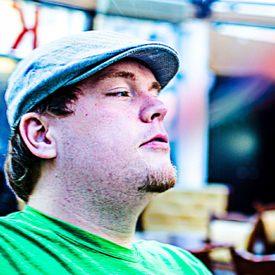How much does sleep affect your weight loss?

WombatHat42
Posts: 192 Member
I know not getting enough sleep can make it harder to lose weight, but to what extent? Is one night of no sleep going to affect it drastically or does it have to be more?
What about sleeping too much (ie more than 8-10 hours)?
What about sleeping too much (ie more than 8-10 hours)?
0
Replies
-
I know not getting enough sleep can make it harder to lose weight, but to what extent? Is one night of no sleep going to affect it drastically or does it have to be more?
What about sleeping too much (ie more than 8-10 hours)?
It's totally arbitrary in my opinion. Some mornings I've had barely any sleep and woke up lighter, some mornings I lie in and wake up heavier.0 -
The point of sleeping is to recovery for your body and mind. It will not really do anything for weight loss. But you got to remember more recovery, means you are able to exercise with more power and energy which means in the long run you will burn more cals.0
-
I was wondering that too. I have a horrible baby who thinks that more than 2 hours sleep at a time is unacceptable and wakes up at 5am to hit me in the face unti I get up. I weighed a pound more this morning than I did yesterday and was way under calorie limit (though that was probably water retention to be honest).0
-
It messes me up big time. I can barely function when I lack sleep. I struggle to stay awake, over eat going over my calories, and don't bother exercising since I am too tired.0
-
I have read a lot about this and it all is really just opinion. In my experience of working overnight for most of the past 17 years, it has made losing weight harder than when I slept regular hours. Although that could also be because I was under 22.0
-
I know not getting enough sleep can make it harder to lose weight, but to what extent? Is one night of no sleep going to affect it drastically or does it have to be more?
What about sleeping too much (ie more than 8-10 hours)?
Regularly getting insufficient sleep makes it more difficult to lose weight because it's stressful to your body and increases cortisol. When you're tired you'll feel hungrier and have a more difficult time staying on your plan.0 -
I know not getting enough sleep can make it harder to lose weight, but to what extent? Is one night of no sleep going to affect it drastically or does it have to be more?
What about sleeping too much (ie more than 8-10 hours)?
This is a bit of a coincidence, 'cause I posted a similar one about insomnia and weight loss recently. I think getting to sleep late makes it more tempting to snack, but getting up ultra early doesn’t seem to have the same effect.
I have been very skinny before when suffering terrible insomnia, but the main impact it had was on my ability to exercise. That’s a shame, because a hard workout would probably help you sleep! No sleep, not eating and no exercise leads to skinny fat, which isn’t all that great either.
There’s all the cortisol stuff too. Also, feeling tired and miserable is just the perfect conditions for comfort eating.0 -
I know I tend to eat/graze throughout the day whenever I'm either a.) on my period, or b.) didn't get an adequate amount of sleep. Honestly, being tired just makes me a bottomless pit because my body is so desperately seeking any form of energy it can get. So, I'm team get-as-much-sleep-as-possible for weight loss.0
-
I totally believe that sleep effects our weight!
I sleep between 12-17 hours a day depending how tired I am. This is not a forced lie in, I naturally fall asleep and naturally wake up. When I only have a max of 8 hours awake how on Earth am I supposed to fit 3 meals, two snacks and exercise in? In my small window of time I have to do the housework, my studies, look after the family and a small part time job.
Since the hypersomnia got worse about 18 months ago it does not matter how healthy I eat, whether I fit my half hour of exercise in I have steadily gained weight. I have tried to cut back my hours of sleep but I don't function safely as my body was not ready to get up. I end up doing stupid things like cooking my handbag instead of the saucepan of beans, putting milk in the washing machine instead of Surf, falling down stairs......0 -
Sleep is a crucial element for retaining energy and stamina throughout the day. In addition, sleep supports the balance in hormone levels, which significantly affects body weight and body fat. A good night’s sleep allows your body to resolve the physical and mental stresses of the day and provides your body with the vital means to function correctly.
The Link Between Sleep and Weight
People who get an adequate amount of sleep each night, considered to be 7 to 9 hours for adults, generally weigh less. It makes sense that sleep supports weight loss; the amount of sleep you are able to get significantly affects two of the hormones in the human body that influence the appetite. Ghrehlin enhances appetite and can lead to weight gain. Leptin represses appetite and can support weight loss. A lack of sleep disturbs the hormonal balance. The result of insufficient sleep leads to an increase in ghrelin and a decrease in leptin levels, which may lead to weight gain.
^^taken from a livestrong.com article. but one night wont really have a negative effect on you. just don't make a habit of it0 -
Can't see it playing a huge role in weight loss but for good quality sleep get some ZMA down you. Won't help you drop off but the quality of sleep is much, much better. Proven scientifically too, unlike herbal bull****.0
-
I doubt that a short-term lack of sleep has any effect on weight-loss but there is some evidence that there is a long-term correlation between lack of sleep and excess weight.
"Evidence suggests that individuals who report fewer total hours of sleep are more likely to be overweight or obese. Few studies have prospectively evaluated weight-loss success in relation to reported sleep quality and quantity. This analysis sought to determine the association between sleep characteristics and weight loss in overweight or obese women enrolled in a randomized clinical trial of a weight-loss program. We hypothesized that in overweight/obese women, significant weight loss would be demonstrated more frequently in women who report a better Pittsburgh Sleep Quality Index (PSQI) Global Score or sleep >7 h/night as compared to women who report a worse PSQI score or sleep ≤7 h/night. Women of ages 45.5 ± 10.4 (mean ± SD) years and BMI of 33.9 ± 3.3 (n = 245) were randomized and completed PSQI at baseline and 6 months; 198 had weight change assessed through 24 months. At baseline, 52.7% reported PSQI scores above the clinical cutoff of 5. Better subjective sleep quality increased the likelihood of weight-loss success by 33% (relative risk (RR), 0.67; 95% confidence interval (CI), 0.52-0.86), as did sleeping >7 h/night. A worse Global Score at 6 months was associated with a 28% lower likelihood of continued successful weight loss at 18 months, but unassociated by 24 months. These results suggest that sleep quality and quantity may contribute to weight loss in intervention-based studies designed to promote weight control in overweight/obese adult women.
PMID: 22402738 [PubMed - indexed for MEDLINE]"
Source: National (U.S.) Center for Biotechnology Information
URL: http://www.ncbi.nlm.nih.gov/pubmed/224027380 -
When I was getting 2-4 hours of sleep a day I was eating everything in sight for the energy boost. With 6-8 hours of sleep I can keep the food to a dull roar.0
-
It's quite complicated, and has numerous effects on your body in different ways that are a barrier to weight loss, and general health. I'll skim over them very quickly, you should be able to look up the different things online:
+ Increased stress levels, - your body will deal with a lack of sleep as a stressful function, it will release cortisol, which is a glucocorticoid - this hormone's function is primarily to raise your blood sugar (in prep for the stressful activity your body is expecting)
+ Increased appetite, the hormonal imbalance that follows a poor sleeping period seems to lead to two things in this way, a general increase in appetite, and also a lack of satisfaction after eating - research currently supports this, I believe it was the university in Chicago, I don't remember how many people they used.
+ Impaired muscle repair, as you know our muscles, and basically everything regenerates/fixes itself up while we sleep. "Higher lean muscle mass means higher metabolism" is the layman term I'm pushing at here, if the muscles aren't given time to repair/re-build themselves properly, this will not be the case so much.
+ Sleep is a period of fasting let's say you get 8hours sleep in a night, you aren't going to want to eat during the time that you're unconscious, obviously - however being awake through the time when you would usually sleep, you would certainly be hungry - and eat more in a 24hour period that you would otherwise need.
+ Research also suggests that you are metabolically impaired in a sleep deprived state - although I have not read that paper in at least a year, and I can't for the life of me remember the source - sorry about that.
Anyway that's a quick skim of what I can drag up out of my brain, haven't done any endocrinology in at least a year.0 -
Thanks for addressing this important topic. Bumping to learn more!0
This discussion has been closed.
Categories
- All Categories
- 1.4M Health, Wellness and Goals
- 398.2K Introduce Yourself
- 44.7K Getting Started
- 261K Health and Weight Loss
- 176.4K Food and Nutrition
- 47.7K Recipes
- 233K Fitness and Exercise
- 462 Sleep, Mindfulness and Overall Wellness
- 6.5K Goal: Maintaining Weight
- 8.7K Goal: Gaining Weight and Body Building
- 153.5K Motivation and Support
- 8.4K Challenges
- 1.4K Debate Club
- 96.5K Chit-Chat
- 2.6K Fun and Games
- 4.8K MyFitnessPal Information
- 12 News and Announcements
- 21 MyFitnessPal Academy
- 1.6K Feature Suggestions and Ideas
- 3.2K MyFitnessPal Tech Support Questions













